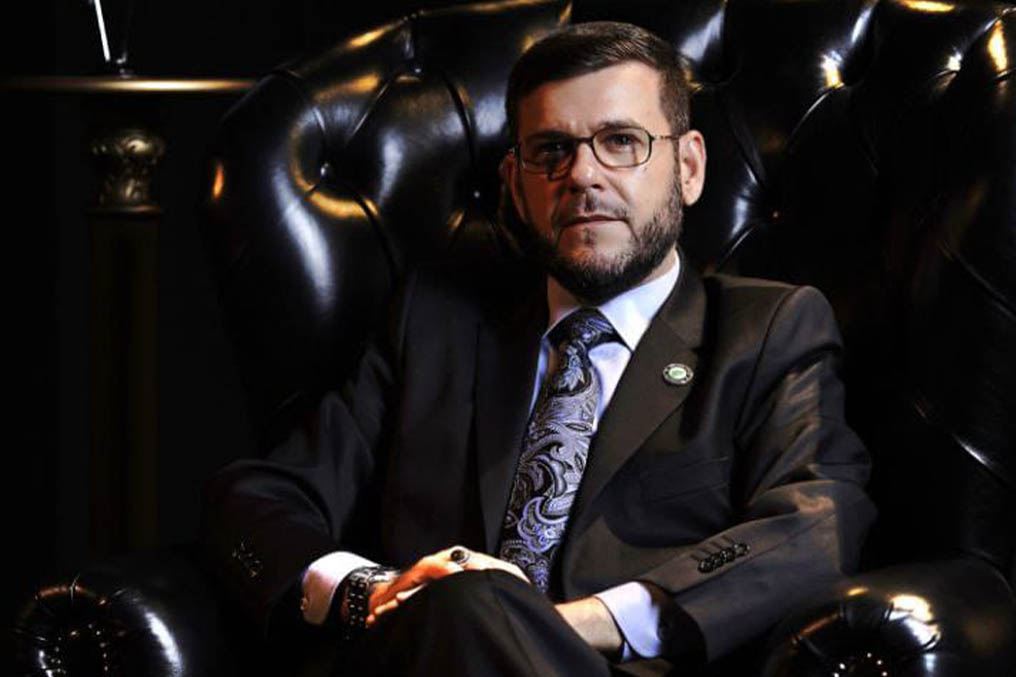“From Thought to Personalization: The Shift from Constructive Criticism to Personal Attack in Intellectual Discussions”

Introduction:
In the realm of intellectual debates and academic studies, the focus is supposed to be on the quality, solidity, and impact of ideas. However, often, we find that discussions deviate from their course, shifting from analyzing ideas to belittling the author and attacking their personality or even their institution! This shift distorts the essence of intellectual dialogue, diminishes its value, and opens the door to bias and division instead of understanding and evolution.
- The Difference Between Constructive Criticism and Personalization:
- Constructive criticism focuses on ideas and arguments presented, seeking to analyze and verify their validity.
- Personalization ignores the intellectual content and directs it towards evaluating the author, often in a negative way.
- Reasons for the Shift to Personalization:
- Inability to refute ideas with objective arguments.
- Personal bias or environmental influences against the author.
- Weakness in critical and analytical culture.
- Effects of Personal Attack on Intellectual Discussions:
- Reducing interest in intellectual content and focusing on personal attack.
- Creating a hostile environment that dampens the spirit of scientific research and constructive discussion.
- Hindering intellectual and academic growth.
- How to Deal with Personal Attack:
- Continually returning to the main points and arguments presented in the study, and reading them objectively to understand their purposes and dimensions.
- Elevating the level of objective and constructive criticism culture from mere response and counter-response to a discussion of ideas.
- Emphasizing the importance of accepting differences in opinions and maintaining complete propriety in presentation and criticism.
Conclusion:
The shift from intellectual criticism to personalization is a dangerous deviation that threatens the quality of academic and intellectual dialogues! Therefore, researchers and intellectuals must adhere to the standards of objective and constructive criticism, focusing on ideas instead of demeaning individuals and accusing their institutions and entities, or categorizing them inappropriately! This is to maintain a healthy discussion environment that contributes to intellectual growth and development.
At the Syrian Future Movement, we note that this long-standing issue has prompted many thinkers and writers to address this topic in various ways, including:
- “Literary Theory: An Introduction” by Terry Eagleton:
The book addresses literary criticism and explains how discussions can shift from intellectual analysis to personal criticism. - “Literary Theory: A Very Short Introduction” by Jonathan Culler:
Culler provides an overview of literary criticism and touches on the importance of critical thinking and avoiding personalization. - “How We Think” by John Dewey:
Dewey focuses on the importance of critical thinking and how intellectual discussions can turn into unproductive debates when the focus is on individuals instead of ideas. - “Criticism and Prejudice” by Edward Said:
Said discusses in his writings how criticism can be affected by personal and cultural biases, leading to personalization instead of intellectual discussion. - “The Art of Being Right” by Arthur Schopenhauer:
Schopenhauer explores in his book the techniques of argumentation and how discussions can deviate from logical arguments to focusing on individuals.
All these books and the works of these thinkers provide valuable insights and analyses on how intellectual discussions can evolve and the risks of sliding into personalization and disparagement instead of focusing on ideas.
Based on the above, we at the Syrian Future Movement offer several recommendations on ways and methods to deal with issues where personalization replaces targeted and constructive criticism:
- Promoting Objective Critical Culture:
Encourage discussions that focus on ideas and content instead of personal attack, achievable through workshops and training seminars on how to conduct constructive criticism. - Creating Forums for Scientific and Intellectual Discussion:
Provide platforms for free and open discussion, where individuals can express their opinions freely with mutual respect. - Emphasizing the Importance of Diversity and Inclusiveness:
Highlight the value of different viewpoints and the necessity of accepting intellectual differences as part of the democratic process. - Training in Effective Communication Skills:
Train our members on how to communicate effectively and positively, especially in politically and socially sensitive environments. - Directing Criticism Towards Policies and Actions Instead of Individuals:
Focus on objectively evaluating and criticizing policies and actions instead of focusing on individuals and entities. - Developing and Adopting an Ethical Code for Criticism:
Create a set of principles and rules guiding how discussions and criticism are conducted within the Syrian Future Movement and with others. - Raising Awareness of the Importance of Constructive Dialogue: Through awareness campaigns, articles, and publications that demonstrate the importance of constructive dialogue and its positive impact on intellectual and social growth.
By following these strategies, we at the Syrian Future Movement can maintain a healthy discussion environment and enhance the culture of constructive criticism, thus preserving our credibility and respect among others in presenting what is useful and beneficial (even if ideas and visions differ and are diverse).






